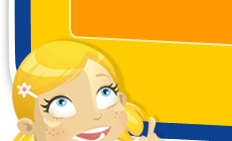You are in: Classroom Keystage 2 · English · Literacy · Word Level · Word Recognition · Word Recognition
Classroom Key Stage 2 / KS2 - English Activities & Resources
Welcome to the Key Stage 2 English area of the @school web site.
This KS2 section is split into important aspects of the English curriculum including speaking and listening, handwriting and drama. Children also have the opportunity to take the online @school assessment tests to see how well they are doing with English.
The main part of English is literacy, consisting of Word Level including phonics, word recognition, spelling, dictionary work, and various texts; Sentence Level including grammar and punctuation, looking at adjectives, adverbs, capital letters, nouns, prepositions, pronouns, sentences, syntax, and verbs; Text Level including writing, fiction, nonfiction, poetry, plays, and different texts. The @school activities are in an interactive, online test, or printable format, bringing a different dynamic to the subject.
Anagram Server - www.wordsmith.org/anagram/index.html Anagram Server A simple application that automatically comes with anagrams of whatever you put in.
Correcting Prefixes - Year 6 - Interactive activity where you need to place the correct prefix in for each word.
Endings of words - Year 4 - Term 3 - Interactive task where you need to change the ending of a word so it fits in with the sentence.
English Activities - Interactive activities including grammar, word meaning, and bright ideas for writing.
Here or hear. Year 4. - A simple activity to help distinguish between the spellings and meanings of common homophones.
Literacy Hour Crossword - Complete the crossword by clicking on the boxes and typing in the correct letters.
Missing words - Year 4 - Term 2 - Choose the correct spelling for each sentence with this online activity.
Plural Cranes - Interactive activity where you have to choose the correct plural endings for diffeent words - es or s.
Plural Test - Type the correct plurals into the spaces below and click the grey button to see your score.
Similar sounding words. Year 4 - A simple activity to help distinguish between the spellings and meanings of common homophones.
There or their. Year 4 - A simple activity to help distinguish between the spellings and meanings of common homophones.
Were or where. - A simple activity to help distinguish between the spellings and meanings of common homophones.
Would or wood. Leaf, leave or leaves. Year 4 - A simple activity to help distinguish between the spellings and meanings of common homophones.








